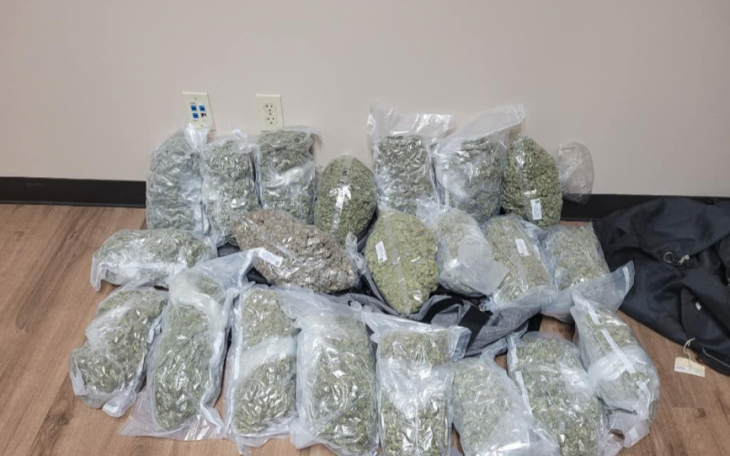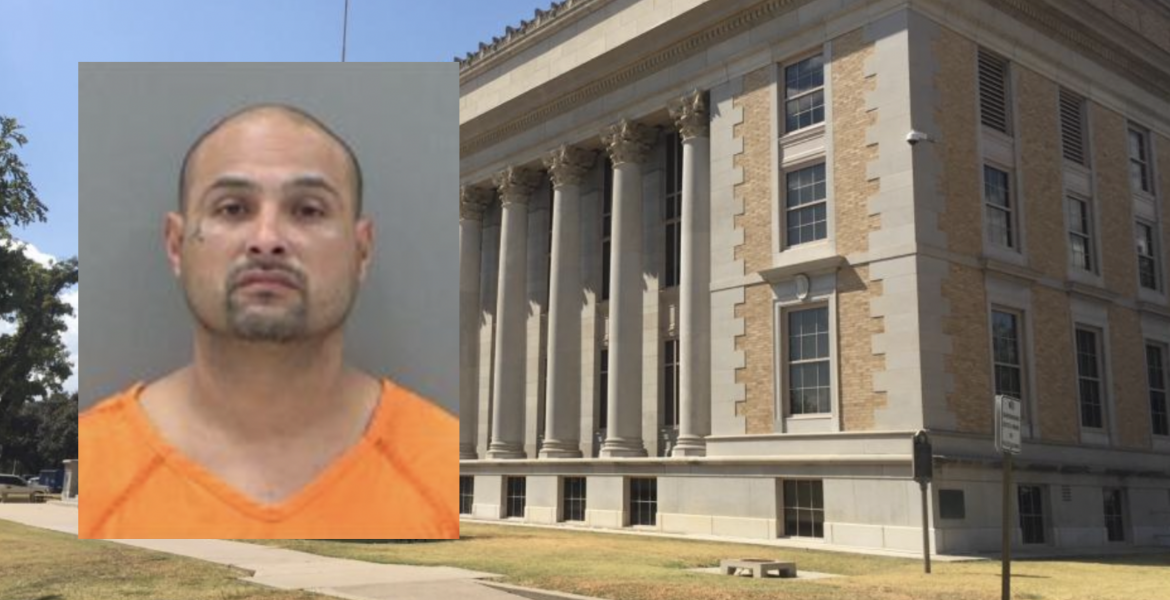A Henderson County man scheduled to be put to death in Huntsville this evening has received a stay of execution from the Texas Court of Criminal Appeals and will return to death row pending evaluation on whether or not he is competent to be executed.
Randall Wayne Mays, 55, has been on death row for the past seven years for shooting and killing Henderson County Deputy Sheriff Tony Ogburn, as well as Sheriff’s Investigator Paul Habelt on May 17, 2007.
According to a summary filed by the Texas Court of Criminal Appeals, the murders took place when officers responded to a domestic violence gunshot call in 2007.
“Although Mays was initially calm and courteous, he (Mays) fled into his house and barricaded himself when the officers began reading him his rights,” court documents state.
The summary says that Mays later emerged carrying a deer rifle, and despite pleas from the officers to put the weapon down and surrender, Mays opened fire and shot Ogburn and Habelt in the head, killing both, and shot a third deputy, Kevin Harris, in the leg.
Mays was sentenced to death on May 13, 2008 after jury found him guilty of capital murder. After over six years of appeals, a death warrant was issued on July 10, 2014 setting Mays’ execution for this evening at 6 p.m.
With the execution date nearing, Mays filed a motion challenging his competency to be executed on Feb 24, 2015, however a judge in the 173rd District Court denied the motion three days later, on Feb. 27.
“…the trial court issued an order in which it found that the appellant had failed to make a threshold showing raising substantial doubt of his competency to be executed,” reads an order from the Court of Criminal Appeals. “Thus, the trial court declined to appoint at least two experts to evaluate appellant.”
Mays appealed the court’s decision on March 2, to the Court of Criminal Appeals, who determined that “further review is necessary” and ordered a stay of execution on March 16 until Mays’ competency can be assessed.
In order to be killed in Texas, the defendant has to both understand that he is being executed and that the execution is imminent, and understand the reason he is being executed. If he doesn’t understand these things, he is not competent to be executed under state law and will require mental health evaluations. He’ll then be executed when his competency is restored.
Mays narrowly avoided being given the needle by a two-day margin when the court issued the stay, and a timeframe for the evaluations was not set in the order.
The next execution isn’t scheduled to take place for three weeks, with five more to follow by June 18. Currently, however, the Texas Department of Criminal Justice only has enough pentobarbital in its stores to carry out one lethal dose, and that dose was initially intended for Mays.
News of the drug shortage recently circulated in major media outlets, but according to TDCJ Director of Public Information Jason Clark, the shortage isn’t anything new.
“It’s not new news,” Clark said. “This is something that we’ve been dealing with over the past couple of years. In 2011, we switched the first drug that we utilized in the three-drug process.”
Clark explained that when lethal injection was adopted as a method of execution in Texas in 1982, the state used a three-drug cocktail that began with a shot of sodium thiopental, followed by pancuronium bromide and finally potassium chloride.
“The first drug would make the person unconscious, the second drug would stop the breathing and the third would stop the heart,” Clark explained. “In 2011, we had to switch that first drug because we could no longer obtain it.”
Pentobarbital replaced sodium thiopental in March 2011, while the second and third drugs remained the same, Clark said. In July 2012, the TDCJ modified its execution protocol from a three-drug sequence to one drug because they would no longer obtain the second drug in the cocktail, he said.
Since 2012, 40 executions have been carried out by the TDCJ without complication, although there have been past instances where the supply got tight.
Asked whether the shortage was linked to the state not being able to obtain the drugs from a supplier, Clark only said, “Texas is not unique in this situation and departments of corrections throughout the country that have the task of carrying out executions are facing similar situations.”
The TDCJ, Clark said, is looking to replenish their supply by the appointed dates and wouldn’t divulge what they will do if they don’t have a dose ready at a future execution.
“We do have enough to carry out one more execution and we are exploring all options, including the continued use of pentobarbital or an alternate drug or drugs to use in the lethal injection process,” Clark said. “At this point I can’t speculate on the future availability of those drugs and so I’m not going to speculate what will happen with those dates [if we are not able to obtain the drugs]. It’s our intent to carry out the executions that are scheduled.”
The next execution is currently set for April 9 at 6 p.m., when Kent Sprouse is scheduled for lethal injection for shooting a man at a gas station and shooting and killing a 28-year-old responding police officer on Oct. 6, 2002.
Subscribe to the LIVE! Daily
Required






Comments
Listed By: Shadows Ryder
We should not encourage drug use even by death row inmates. Perhaps a lethal injection by firearm, perhaps the victim's duty weapon..., and incipient lead poisoning could be explored...
- Log in or register to post comments
PermalinkListed By: Tracey Williams
A law signed Monday by Utah Gov. Gary R. Herbert (R) establishes firing squads as a secondary execution method in the event the Department of Corrections can't obtain drugs for lethal injection. I'm talking about Utah because it has started talks of "death by firing squad". But, like everything else in our government system, that takes some time to get it done. The use of the electric chair has declined as legislators sought what they believed to be more humane methods of execution. Lethal injection became the most popular method, aided by media reports of botched electrocutions in the early 1980s. It's been said that death by the electric chair is "cruel and unusual punishment". As of 2014, the only places in the world which still reserve the electric chair as an option for execution are the U.S. states of Alabama, Florida, South Carolina, Kentucky, and Virginia. (Arkansas and Oklahoma laws provide for its use should lethal injection ever be held to be unconstitutional.) Inmates in the other states must select either it or lethal injection.
This information was obtained at: http://en.wikipedia.org/wiki/Electric_chair
- Log in or register to post comments
PermalinkPost a comment to this article here: